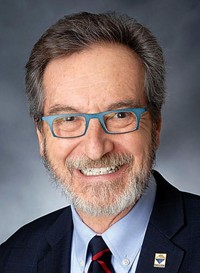Advertisement
Grab your lab coat. Let's get started
Welcome!
Welcome!
Create an account below to get 6 C&EN articles per month, receive newsletters and more - all free.
It seems this is your first time logging in online. Please enter the following information to continue.
As an ACS member you automatically get access to this site. All we need is few more details to create your reading experience.
Not you? Sign in with a different account.
Not you? Sign in with a different account.
ERROR 1
ERROR 1
ERROR 2
ERROR 2
ERROR 2
ERROR 2
ERROR 2
Password and Confirm password must match.
If you have an ACS member number, please enter it here so we can link this account to your membership. (optional)
ERROR 2
ACS values your privacy. By submitting your information, you are gaining access to C&EN and subscribing to our weekly newsletter. We use the information you provide to make your reading experience better, and we will never sell your data to third party members.
Careers
Mixing It Up
New congressional diversity and innovation caucus gives minority stakeholder groups a voice
by Linda Wang
March 17, 2008
| A version of this story appeared in
Volume 86, Issue 11

IMPROVING THE presence of women and underrepresented minorities in science, technology, engineering, and mathematics (STEM) fields is an important challenge that has been tackled by a range of groups in academia and within various federal agencies. The latest group to look into this difficult problem is the House of Representatives' Diversity & Innovation Caucus.
Approximately 110 people representing more than 80 organizations took part in a meeting hosted by the caucus on Feb. 28 at the Library of Congress in Washington, D.C. The participants were invited to share their ideas and offer policy recommendations on how to increase the participation of women and underrepresented minority groups in STEM fields.
During the meeting's opening remarks, Rep. Silvestre Reyes (D-Texas), a cofounder of the caucus, said that feedback and collaboration from these stakeholder groups is critical "to help to map out an agenda for achieving true diversity in the STEM fields." He added, "We need your help to know what works and what does not. We need your brains, your organizations, and your support in this great effort."
Reyes and other members of Congress founded the caucus in March 2007 to shape legislation promoting diversity in STEM fields. He and many others believe that having a diverse STEM workforce is key to improving the nation's economy and ensuring that the U.S. remains competitive globally.
The meeting consisted of two hour-long discussions among panelists and stakeholders. The first discussion focused on diversity in K-12 STEM education, and the second discussion centered on diversity in higher education and in the workforce. After listening to brief remarks from a panel of congressional and academic leaders, meeting attendees were invited to participate in an open discussion.
American Chemical Society Immediate Past-President Catherine T. Hunt spoke up about the importance of going into elementary schools and talking to kids about science in a way that they can relate to. She described the efforts of one ACS student affiliate group that links up with scientists to do demonstrations with children in the classroom.
DURING THE SECOND panel discussion, Rep. Eddie Bernice Johnson (D-Texas), who is a member of the caucus, said it is critical that women and minorities be included in STEM education and in the STEM workforce because these groups together now make up a majority of the population.
"We don't want to lose those minds by not providing for them the environment that will encourage them to achieve," Johnson said. "It is worth our investment because it does so much for our nation and for the world."
Rep. Rubén Hinojosa (D-Texas), another member of the caucus, called this an "exciting time" for Congress. "We in Congress need for you to be fully engaged in our national policy discussion on competitiveness," he said. "We need you to hold Congress and the White House accountable."
"Faculty diversity has really not moved very far," said panelist Orlando L. Taylor, vice provost for research and dean of the Howard University Graduate School. "Despite an increase in the number of Ph.D.s we produce, we see a significant lagging behind of women and persons of color on faculty," he noted. According to Taylor, research shows that students of all races, ethnic groups, and genders perform better in an environment where they have a diverse faculty.
Audience member Donna J. Nelson, an associate professor of chemistry at the University of Oklahoma, said that faculty search committees and awards committees should include a large percentage of women and underrepresented minorities. Having this presence, she explained, will help make sure these underrepresented groups are equally considered.
In preparation for the meeting, the caucus solicited written feedback from more than 30 stakeholder groups, including ACS, on how to encourage more minorities to enter STEM professions. ACS recommended that federal STEM education programs target the highest need schools with their resources. It also recommended that Congress continue to support and expand programs with proven results in addressing diversity issues in the STEM fields.
Other groups recommended that the caucus ensure that universities and other higher education institutions comply with the federal antidiscrimination laws in place and use Title IX as a tool to eliminate the barriers that still exist for girls and women pursuing STEM programs. This last recommendation refers to Title IX of the Education Amendments Act of 1972, which bans sex discrimination in schools.
The caucus is compiling the information gathered from the written feedback and the meeting, and it will release a report to the public within the next few months. The report will be a policy agenda that includes a 10-point plan to promote diversity in the STEM fields, said a spokesperson from Reyes' office.



Join the conversation
Contact the reporter
Submit a Letter to the Editor for publication
Engage with us on Twitter